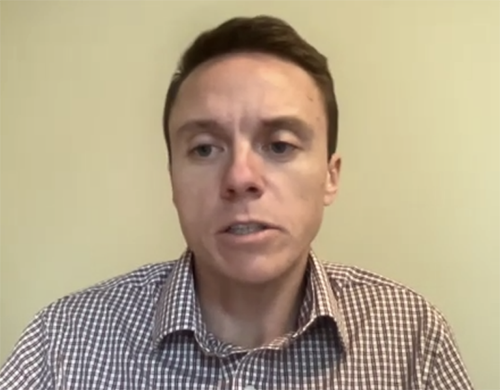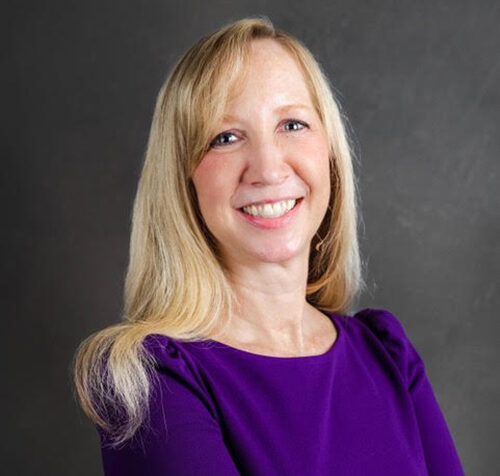This story is part of ongoing work on LGBTQ+ healthcare in North Carolina, written by Joe Killian. It was conceived and written through a partnership between NC Newsline and Qnotes Carolinas.
Due to concerns regarding threats of violence, Newsline agreed to identify some sources in this story by their first names only.
When Sage, a 14-year-old non-binary person from Greensboro, came out as transgender, they had a lot going for them.
The support of their family and friends. A culture that was becoming more aware and accepting of transgender people and their needs. Access to good and affordable medical care.
After consulting with doctors, Sage and their family chose to use puberty blockers for about two years. The extra time allowed Sage to more consciously work on strategies to prevent gender dysphoria — the distress that comes from a misalignment of one’s body and gender identity.
The process was simple, safe and reversible, Sage and their family said, and the difference it made was life-changing.
“They weren’t sure yet exactly what they were going to want in the future,” Sage’s mother, Debra, said. “But this allowed a pause to figure things out.”
This sort of treatment has been in use for four decades, during which studies have repeatedly shown it leads to better mental health outcomes for transgender youth, dramatically lower levels of depression and suicidal ideation. It’s broadly supported by the nation’s largest and most respected medical organizations, including the American Medical Association, the American Academy of Pediatrics, the American Psychiatric Association and the Endocrine Society.
In North Carolina, however, after a legislative session that featured several broad assaults on LGBTQ people, their visibility and their allies, it is now illegal.
“A lot of confusion and fear”
House Bill 808 became law when the General Assembly’s GOP majority overturned Gov. Roy Cooper’s veto in August. It bans all gender-affirming medical care – from puberty blockers and hormone treatment to various surgeries – for anyone under 18, irrespective of their doctor’s advice and parents’ consent.
The law also prohibits state funds and Medicaid dollars from being used for such care, directly or indirectly. Doctors providing such care could face civil penalties and lose their medical licenses under the new law.
For families like Sage’s – and the doctors who treat transgender youth – the ambiguity of the law’s language is already stoking confusion and fear.
A section of the law states medical professionals “shall not be prohibited from continuing or completing a course of treatment for a minor that includes a surgical gender transition procedure, or the administration of puberty-blocking drugs or cross-sex hormones, if all of the following apply:
- The course of treatment commenced prior to Aug.t 1, 2023, and was still active as of that date.
- In the reasonable medical judgment of the medical professional, it is in the best interest of the minor for the course of treatment to be continued or completed.
- The minor’s parents or guardians consent to the continuation or completion of treatment.”
The language does not specify what qualifies as “a course of treatment” having commenced.
Would a diagnosis of gender dysphoria after consultation with psychologists and physicians qualify?
Would they have to have begun a course of physical treatment, such as puberty blockers? If so, could they proceed from that treatment on to others, or only complete the most recent course of treatment?
In an environment in which Republican state lawmakers and conservative activists have compared voluntary treatments that are the standard of care for transgender people to child abuse, forced sterilization and lobotomies, who decides whether a doctor’s medical judgment is “reasonable?”
“We didn’t have the answer to any of those questions,” said Debra, Sage’s mother.
Their solution, after consultation with a local doctor, was to move up the timeline of Sage’s hormone treatment so medical records reflected it would already have begun by the time the law took effect. Sage was grateful the doctor was so proactive and that they’ll be able to get care in the future, but worries about those who haven’t been so fortunate.
Transgender patients, their families and doctors filed a federal lawsuit last month over the new law, saying it bars transgender patients from treatments and procedures widely available to (and in use for) cisgender patients of all ages.
“This treatment is medically necessary, safe, effective, and supported by every major medical organization in the U.S.,” said Dr. Riley Smith, a family physician and an assistant professor at UNC School of Medicine, in the press conference announcing the suit.

“Laws banning gender-affirming care will have dire consequences for transgender youth,” said Riley, who is a plaintiff in the suit. “We do not need politicians in the exam rooms with us, overriding the decisions of families and their doctors or putting our professional licenses at risk for doing our jobs.
“Instead, providers in North Carolina should be able to provide the highest quality, evidence-based care to their transgender patients, just like we do for our other patients,” Smith said.
Newsline spoke to doctors who work with transgender patients across the state this month about how they’re reacting to the law and what it will mean for their practices and patients. Several declined to comment on the record, citing threats of violence to their practices or their homes from people opposed to their work. Others spoke on the condition they, their hospitals or practices not be directly identified due to both threats of violence and fear of political retaliation from the legislature.
“There’s a lot of confusion and fear right now,” said Katherine Croft, a nurse working in trans health care and board member of the LGBT Center of Raleigh. “It results in a lot of patients not knowing the right thing and maybe getting multiple different answers as to whether they can continue this medically necessary care. And there’s a lot of apprehension for those who were identified as trans earlier, were on track to get care but maybe hadn’t by the [August 1] date.”
For a variety of reasons, most transgender people still identify as trans and take steps to socially and — if they feel it necessary, medically — transition after puberty, Croft said. But for many, doing so earlier can make the process much easier, she said.
“For those who are able to identify themselves early and have supportive families that are willing to investigate treatment, see if it’s right for them, being able to do something like puberty blockers, and then move into hormone therapy is much more beneficial to those patients,” Croft said.
In addition to alleviating the psychological turmoil of experiencing a puberty that doesn’t align with their gender identity, those who are able to transition earlier can often opt for less treatment later, Croft said. That includes being able to avoid some gender-affirming surgery to alter aspects of the body changed in that puberty.
With trans young people now barred from gender-affirming care in North Carolina, Croft said, they will likely face greater mental health challenges, higher rates of suicide and a steeper climb when they do transition later in life.
A double-edged sword
Croft, who is herself transgender, said it is becoming more common for people to identify as trans earlier in life than people of her generation often did. But that’s because trans visibility and acceptance have increased in much the same way it has become more socially acceptable for gay, lesbian and bisexual people to be out of the closet with their friends, families and in their workplaces.

“I’ve known that I was trans from a very young age,” Croft said. “I can go back to when I was six or seven and very clearly see that I had that incongruence in my gender. But I tried to transition in 2005, just around the time I turned 18. And even at that time, there was not any real clear discussion around me of trans people. I didn’t even know that medical care really existed for trans people.”
That’s changed drastically, with transgender and non-binary musicians like Kim Petras and Janelle Monáe enjoying mainstream stardom, trans actors like Laverne Cox and Elliot Page sharing their transition stories andtransgender athletes and models breaking barriers and making history.
That increased visibility can be a double-edged sword, however, with conservative activists and lawmakers viewing increased openness about both sexual and gender identity as a “social contagion” that threatens children who would otherwise be straight and cisgender. Those sentiments have provided fuel for a national movement to drive LGBTQ people from the public square. Politicians like Lt. Gov. Mark Robinson – now running for governor – have described even the mention of LGBTQ people as “filth” from which children must be shielded.
The rhetoric is not that different from previous moral panics around gay and lesbian people decades ago, Croft said, but this one has a new and different dimension.
“When it comes to transgender people, there is an aspect of this that is about access to health care,” Croft said. “The medical community recognizes and agrees that this care is lifesaving, and we’re seeing these attempts to legislate it out of existence.”
“Waking up and constantly looking at the news and finding another article that is debating whether you should exist as a person is very demoralizing and can make you feel very negative,” Croft said. “It adds this extra layer of fatigue and stress on top of an already very stressful existence, this misunderstanding and demonization of trans identity as a whole and trans health care as a part of that.”
Debra, the mother of trans youth Sage, said she knows her family is lucky to have access to quality gender-affirming health care in an environment that has grown increasingly hostile to it. But she knows families who aren’t so lucky – and some who are contemplating moving to states where such bans aren’t in place.
“I do believe that’s one of the goals of all of this,” Debra said. “You take a state like North Carolina, a purple state that still has plenty of progressive people, and you make it increasingly a hostile place for them and for their families. They leave and suddenly the state gets redder, you have less political opposition.”
Moral panic and glimmers of hope
With North Carolina joining a national anti-transgender wave that threatens access to much needed health care, a new program in the state’s largest city is looking to provide a lifeline.
Last month, the nonprofit Charlotte Trans Health announced the Providing Access to Trans Health (PATH) program — an effort to connect trans people 16 and older with the care still available to them. The program, supported by Mecklenburg County with funds from the American Rescue Plan Act (ARPA), will provide case management services to help find trans-friendly doctors through its well-established network and cover the cost of mental health care and prescriptions like those used in hormone replacement therapy. Services for those living outside Mecklenburg County are covered by donations.
Charlotte Trans Health formed 11 years ago, said Holly Savoy, a psychologist and the group’s executive director. “We were 13 providers gathered together to try to kind of fill that void, to better educate ourselves and create some visibility of the limited resources that were there at the time for transgender patients.”

Charlotte Trans Health has since grown to become a robust network of providers, from therapists and family physicians to specialists in transition care, working around, and increasingly beyond, the Queen City.
“We’ve seen so much demand and particularly with all the telehealth going on, we’ve had providers from other areas get involved as well,” Savoy said.
Recent legislation may have temporarily closed the door on treatments like puberty blockers and hormone replacement therapy for trans youth, Savoy said. But connecting young trans people with necessary mental health care and the doctors who can provide the treatment when it becomes available is important work. For many trans people of all ages, good care from medical providers who understand their lives and concerns can feel out of reach, she said – but it doesn’t have to be.
When trans healthcare bans began proliferating across the country, North Carolina was for a time a haven for trans patients from nearby Tennessee, Savoy said. Now, North Carolinians are looking to neighboring Virginia and South Carolina – states that don’t yet have such bans in place – to get care.
“There are growing networks and collectives of providers around the country who are coming together to really collaborate in supporting one another and navigating all the legislation throughout the country,” Savoy said. “We have people in states like North Carolina and Texas, but we’re also in touch with providers and networks of providers in other states, where maybe treatment is available across state lines.”
It’s a demoralizing time for both patients and providers trying to navigate vague and hostile new legislation, threats of lawsuits and even violence, Savoy said. But she tries to remember – and remind others – of why this sort of care is suddenly being threatened.
“It’s just awful to have to go through what’s happening right now and how it’s affecting peoples’ lives,” Savoy said. “But in facing all of this backlash, I try to remember that it’s because of all the wonderful progress we’ve made in recent years. And we are going to find our way back to that progress. That’s a little glimmer of hope.”
Investigative Reporter Joe Killian's work examines government, politics and policy, with a special emphasis on higher education, LGBTQ issues and extremism.
NC Newsline is a nonpartisan nonprofit news organization dedicated to fearless reporting and hard-hitting commentary that shines a light on injustice, holds public officials accountable, and helps improve the quality of life for all North Carolinians. Founded in 2004 as a small commentary nonprofit known as NC Policy Watch, our newsroom was renamed in 2023 to reflect its evolution into a full-service digital outlet that connects readers and listeners to important news and opinion from across North Carolina and the nation.







